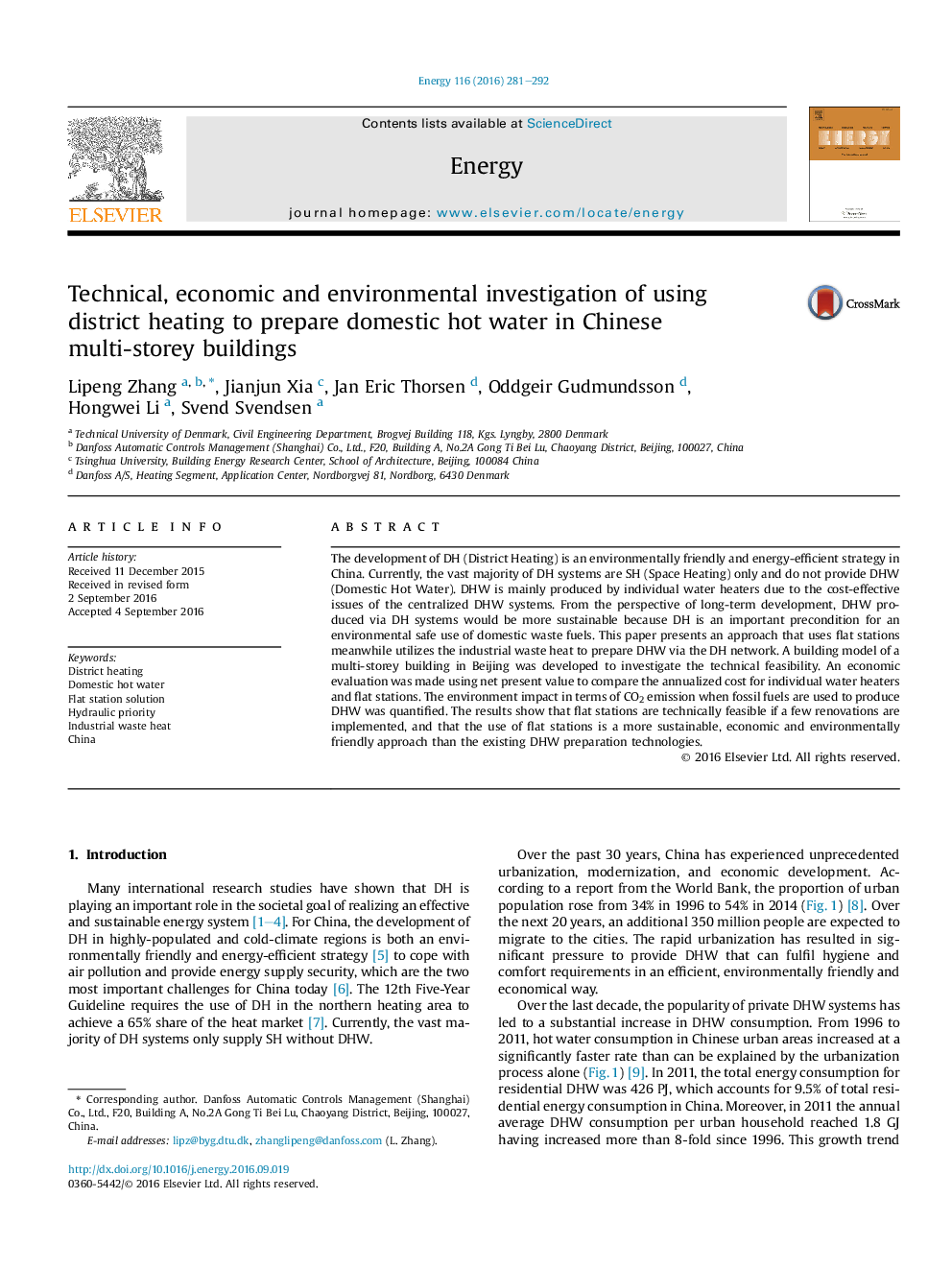| Article ID | Journal | Published Year | Pages | File Type |
|---|---|---|---|---|
| 5477287 | Energy | 2016 | 12 Pages |
Abstract
The development of DH (District Heating) is an environmentally friendly and energy-efficient strategy in China. Currently, the vast majority of DH systems are SH (Space Heating) only and do not provide DHW (Domestic Hot Water). DHW is mainly produced by individual water heaters due to the cost-effective issues of the centralized DHW systems. From the perspective of long-term development, DHW produced via DH systems would be more sustainable because DH is an important precondition for an environmental safe use of domestic waste fuels. This paper presents an approach that uses flat stations meanwhile utilizes the industrial waste heat to prepare DHW via the DH network. A building model of a multi-storey building in Beijing was developed to investigate the technical feasibility. An economic evaluation was made using net present value to compare the annualized cost for individual water heaters and flat stations. The environment impact in terms of CO2 emission when fossil fuels are used to produce DHW was quantified. The results show that flat stations are technically feasible if a few renovations are implemented, and that the use of flat stations is a more sustainable, economic and environmentally friendly approach than the existing DHW preparation technologies.
Related Topics
Physical Sciences and Engineering
Energy
Energy (General)
Authors
Lipeng Zhang, Jianjun Xia, Jan Eric Thorsen, Oddgeir Gudmundsson, Hongwei Li, Svend Svendsen,
